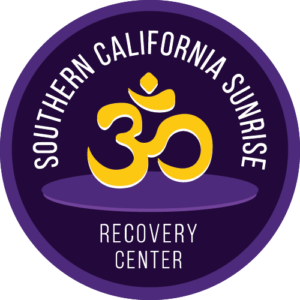For many individuals, military service represents a profound honor and an immense source of pride. However, the intense demands of service, the traumas of combat, and the hurdles of reintegration into civilian life can spawn significant emotional and psychological stresses. A particularly concerning result of these stresses is the escalated rate of alcoholism among veterans.
According to the Substance Abuse and Mental Health Services Administration (SAMHSA), 65% of veterans who enter treatment programs cite alcohol as their most frequently misused substance. This rate is nearly double that of the general population, underscoring the gravity of the issue. Tres Vistas Recovery, a leading outpatient addiction treatment center in San Juan Capistrano, California, dives deeply into this critical topic to shed light and offer valuable solutions.
Alcohol Abuse in Veterans and Active Military
The military culture, both during active duty and post-service, often revolves around camaraderie. Many times, social interactions involve drinking. While occasional drinking is socially accepted and can relieve stress, the line between casual drinking and dependency can quickly blur. For some veterans, alcohol becomes a coping mechanism for dealing with the traumas of war, the pressures of service, or the difficulties of reintegrating into civilian society. Recognizing these challenges underscores the importance of veterans’ rehab programs tailored to their unique needs.
This trend is reflected in the numbers. Heavy alcohol use was reported by 7.5% of veterans within a given time frame, a rate that’s noticeably higher than the 6.5% reported by their non-veteran counterparts. Such statistics underscore the need for increased awareness and targeted interventions for those in the military community.
Prevalence of Alcoholism in Veterans
The data on alcoholism in veterans paints a stark picture. Binge drinking and heavy alcohol use are notably more common among military personnel than civilians. A significant contributor to this trend is exposure to combat. Those with high levels of combat experience are particularly vulnerable, with a study from 2017 revealing that they are more likely to engage in heavy drinking at 26.8% and binge drinking at 54.8%, compared to their peers in the military with less or no combat exposure. This emphasizes the deep connection between the traumas of warfare and the subsequent challenges of addiction.
Many veterans continue these patterns post-deployment, with many developing alcohol use disorders. Transitioning from active duty to civilian life can exacerbate feelings of isolation, leading some veterans to use alcohol to self-medicate.
Risks of Alcoholism in Veterans
Veterans grappling with the heavy weight of PTSD and alcohol abuse are at increased risk on multiple fronts. Physically, excessive alcohol consumption can lead to liver diseases, cardiovascular problems, and a weakened immune system. Additionally, veterans might experience impaired judgment when under the influence, making them susceptible to accidents or self-harm.
Moreover, alcoholism can strain personal relationships. Many veterans’ families witness their loved ones’ painful transformation from being disciplined service members to individuals battling a severe addiction. This often leads to broken relationships, unemployment, and even homelessness.
Co-Occurring Disorders & Alcohol Abuse
For many veterans, alcoholism is not a standalone issue. It often exists alongside other co-occurring disorders. Post-traumatic stress disorder (PTSD) is notably common among veterans, especially those who have witnessed combat. Depression, anxiety, and traumatic brain injuries are frequently reported among veterans. The presence of these disorders can complicate the trajectory of alcoholism, making recovery even more challenging. However, understanding this interplay is crucial for crafting comprehensive treatment plans that address addiction and its root causes.
Dive deeper into the connection between PTSD and substance abuse in veterans. Explore the underlying reasons for this dual diagnosis and discover the therapeutic approaches that can guide them toward recovery.
Long-Term Effects of Alcoholism in Veterans
The repercussions of unchecked alcoholism in veterans are vast and multifaceted. If left unaddressed, these effects can compromise the overall well-being of veterans and spill over into their families and communities. Below is a detailed exploration of these long-term effects, broken down for clarity:
Physical Health Impacts
- Liver Diseases: Risks include cirrhosis, alcoholic hepatitis, and liver cancer
- Cardiovascular Issues: Includes high blood pressure, irregular heartbeat, and increased stroke risk
- Digestive Problems: Potential for ulcers, gastritis, and pancreatitis
- Weakened Immunity: Reduced ability to fend off illnesses
Mental Health Impacts
- Exacerbated PTSD: Heightened symptoms like anxiety, flashbacks, and nightmares
- Depression: Deepened feelings of sadness and hopelessness
- Cognitive Decline: Memory lapses and impaired decision-making
- Increased Anxiety: Chronic use can amplify anxiety levels
Social and Economic Impacts
- Relationship Strain: Conflicts and emotional distance with loved ones
- Economic Issues: Potential job losses and financial instability
- Legal Challenges: Risks like DUIs and other alcohol-related offenses
- Community Impact: Elevated crime rates and strained community resources
Outpatient Rehab for Alcoholism in Veterans – Tres Vistas Recovery
Recognizing the unique challenges faced by veterans struggling with alcoholism, Tres Vistas Recovery offers specialized outpatient rehab programs tailored to their needs. Located in the serene environment of San Juan Capistrano, California, Tres Vistas provides a safe and healthy space for veterans and their families to embark on the recovery journey.
Our holistic approach ensures that veterans receive comprehensive care, addressing both their addiction and any co-occurring disorders. By understanding military soldiers’ specific pressures and traumas, our team crafts individualized addiction treatment services, placing veterans on a path to a brighter, sober future. The issue of alcoholism in veterans is multi-faceted and deeply ingrained in the challenges faced during and after military service. By understanding its prevalence, risks, associated disorders, and long-term effects, we can better address the needs of our veterans.












